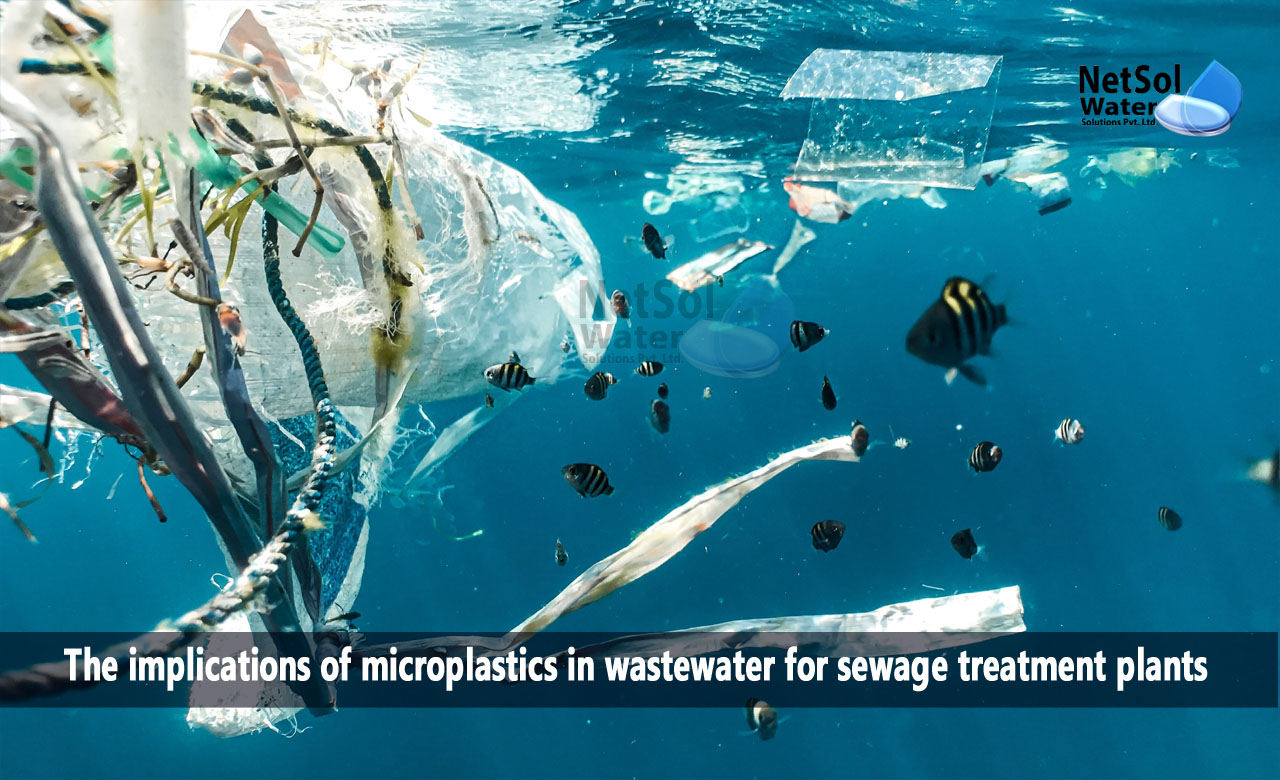The implications of microplastics in wastewater for STP Plants
Microplastics, tiny plastic particles measuring less than 5mm in size, have become a global environmental concern. These particles enter the environment through various sources, including wastewater discharge. As sewage treatment plants play a crucial role in managing wastewater, they also have a significant impact on the fate and transport of microplastics.
We will explore the implications of microplastics in wastewater for sewage treatment plants and discuss potential strategies to address this emerging environmental issue.
Understanding Microplastics in Wastewater
Microplastics are derived from various sources, including synthetic fibers, microbeads, and fragmented larger plastic items. These particles are often invisible to the naked eye and can be present in wastewater due to their presence in household products, industrial discharges, and surface runoff. Once released into the wastewater stream, microplastics pose a challenge to sewage treatment plants due to their small size and resistance to degradation.
Fate of Microplastics in Sewage Treatment Plants
Sewage treatment plants are designed to remove organic matter, nutrients, and contaminants from wastewater. However, the conventional treatment processes employed in these plants are not specifically designed to remove microplastics. As a result, a significant portion of microplastics present in the influent can pass through the treatment process and enter the treated effluent.
Implications for the Environment and Human Health
The release of microplastics into the environment through treated effluent can have detrimental effects on ecosystems and human health. Microplastics can accumulate in aquatic organisms, leading to potential adverse impacts on their physiology and reproductive systems. Additionally, microplastics have the potential to adsorb and transport harmful chemicals, such as persistent organic pollutants, which can be harmful to both aquatic organisms and humans if they enter the food chain.
Strategies to Address Microplastics in Wastewater
To mitigate the release of microplastics from sewage treatment plants, several strategies can be implemented:
1. Source Control
Preventing the entry of microplastics into the wastewater stream at the source is crucial. This can be achieved through public awareness campaigns, regulations on the use of microplastics in consumer products, and the promotion of sustainable alternatives.
2. Advanced Treatment Technologies
Implementing advanced treatment technologies specifically designed to remove microplastics can significantly reduce their presence in the treated effluent. Techniques such as membrane filtration, activated carbon adsorption, and advanced oxidation processes have shown promise in removing microplastics from wastewater.
3. Sludge Management
Microplastics can also accumulate in sewage sludge, which is often used as fertilizer or disposed of in landfills. Proper management of sludge, including the implementation of efficient separation and treatment methods, can minimize the release of microplastics into the environment.
Monitoring and Research
Regular monitoring of microplastics in wastewater and treated effluent is essential to assess the effectiveness of mitigation strategies and identify potential hotspots. Continued research on the behavior, fate, and impacts of microplastics in wastewater systems is also crucial for developing innovative solutions.
Summary
Microplastics in wastewater present a significant environmental challenge, and sewage treatment plants play a critical role in addressing this issue. Understanding the fate of microplastics in treatment processes and implementing strategies such as source control, advanced treatment technologies, proper sludge management, and monitoring can help minimize the release of microplastics into the environment. It is essential for wastewater management authorities, researchers, and policymakers to work together to develop comprehensive approaches that protect ecosystems and safeguard human health from the impacts of microplastics.
Netsol Water is Greater Noida-based leading water & wastewater treatment plant manufacturer. We are industry's most demanding company based on client review and work quality. We are known as best commercial RO plant manufacturers, industrial RO plant manufacturer, sewage treatment plant manufacturer, Water Softener Plant Manufacturers and effluent treatment plant manufacturers. Apart from this 24x7 customer support is our USP. Call on +91-9650608473, or write us at enquiry@netsolwater.com for any support, inquiry or product-purchase related query.



